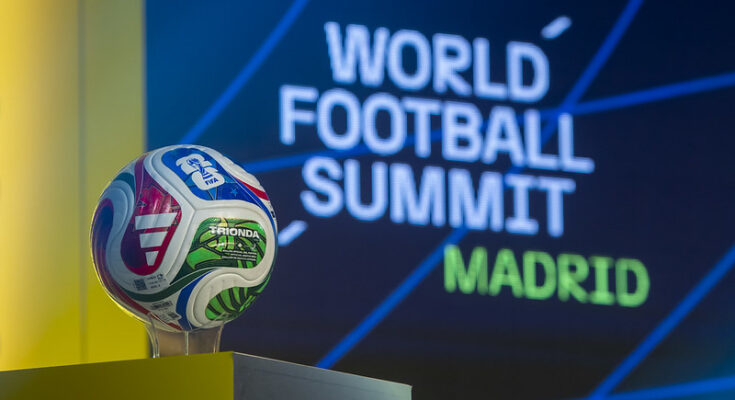Madrid, 15-16 October 2025. The biggest challenge facing professional football is not whether the ball ends up in the goal, but whether fans continue to pay attention. That was the message from Maheta Molango, chief executive of the Professional Footballers’ Association (PFA), who issued a stark warning about audience fatigue at the World Football Summit Madrid 2025: “Christmas is special because it happens once a year; if it were every Friday, it wouldn’t be special. Scarcity adds value. If we saturate the calendar, we risk losing the magic of the game.”
His comments came at this year’s largest football business gathering, where 2,500 delegates from more than 80 countries discussed the risks and realities of football’s new role in a hyper-competitive entertainment industry. Over two days, speakers argued that football no longer competes only with rival clubs, but also with platforms such as Netflix, TikTok and Spotify for the public’s attention.
Marco Castellaneta, director of strategy at Juventus FC, put it bluntly: ‘We are not fighting other teams for attention, but entertainment giants.’ Lise Klaveness, president of the Norwegian Football Federation, emphasised the risk: ‘Football is losing ground. We have to prioritise innovation and the future if we want to keep our fans interested.’
David Aganzo, president of the Spanish Professional Footballers’ Association, reinforced this concern and called for transparency and balance in the campaign to export LaLiga matches abroad: ‘There must be a balance between sport and money. We don’t want confrontation, we want information. At the end of the day, it’s the players and the fans who make the game.’
The data behind the debate
More than 120 speakers and 35 round tables at La Nave delivered a resounding verdict: football is at a turning point, facing rapid technological disruption and audience fragmentation. Rocío Albert, Madrid’s Minister of Economy, revealed that sport generates more than €2.5 billion a year in the city, and that sports tourism accounts for 20% of visitors, demonstrating the continued economic weight of football, but also its vulnerability in today’s attention economy.
Lorin Parys, CEO of the Belgian Pro League, called on football organisations to act more like media companies: ‘We must behave like television networks, using data and technology to create 360-degree experiences that keep fans connected.’ Albert Minguillón of Atos added: ‘Technology should make all fans feel comfortable and part of the action, whether they are in the stands or on their way to the stadium.’
Zubair Timol, vice president of Meltwater, focused on the power of content: “A fan in São Paulo may follow a European club because of the excitement it conveys on social media. Content defines the modern relationship with fans.”
Breaking barriers and rising stars
It wasn’t just men’s football that took centre stage. Nadine Kessler, UEFA’s director of women’s football, reminded attendees: ‘Women’s football is not a victim, it’s a rising star.’ Grace Ahrens, executive director of Women in Football, championed the sport’s potential to reach new fans and transform the industry, while Quentin Paquelier (Club América) pointed to its explosive growth: ‘By 2030, women’s football will be the fifth most important sport globally in terms of fan numbers and revenue.’
The summit also saw activism in action, with former player Aintzane Encinas launching the #SkipTheBarriers campaign to combat discrimination and open doors for women and girls. Attendees scored symbolic goals against training barriers built from real derogatory phrases, making a statement for equality on and off the pitch.
The Madrid 2025 World Football Summit concluded with Karima Benyaich, Morocco’s ambassador to Spain, highlighting Morocco’s key role as co-host of the 2030 FIFA World Cup alongside Spain and Portugal: ‘Morocco will be the bridge between continents, uniting football and people.’



